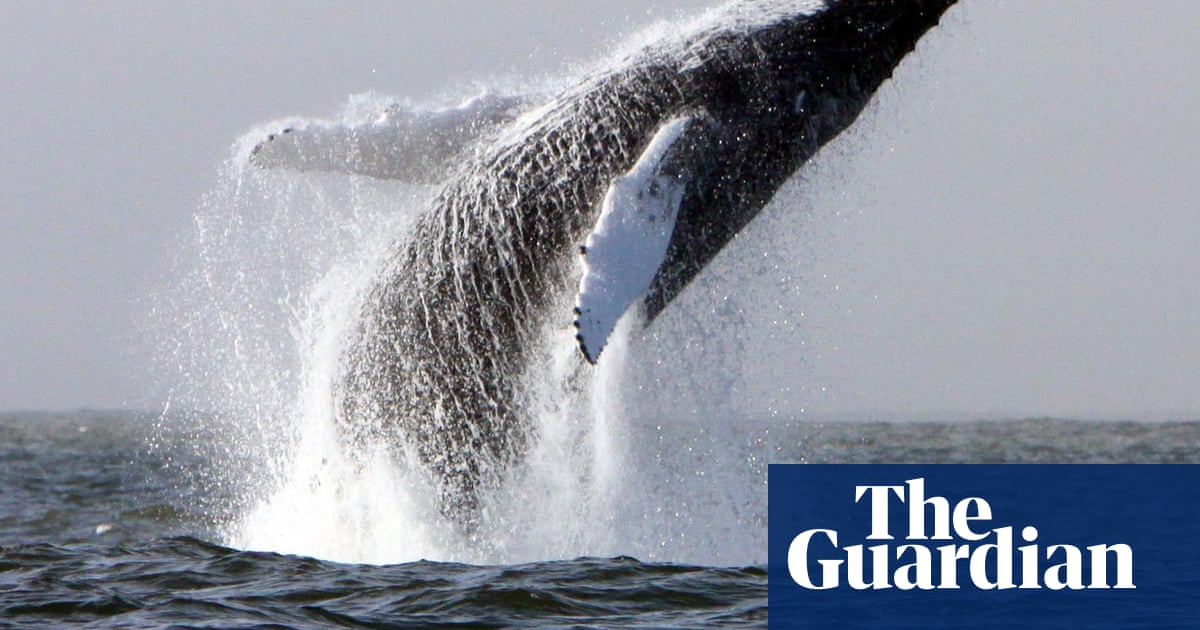A whale-watching company has abandoned tours offIreland’s southern Atlantic coast and declared the waters an empty, lifeless sea.
Colin Barnes, who ran Cork Whale Watch, announced he was closing the company because overfishing of sprat has disrupted the marine food chain and diverted humpback, minke and fin whales as well as dolphins.
“Sadly, our world-class whale watching is now a thing of the past,” Barnes said in apost this week. “A small number of greedy fishermen with huge trawlers have overfished the sprats to the point of near extinction. There is nothing left for the whales to prey upon so they have moved on in search of prey elsewhere.”
The company, based in the coastal village of Unionhall, also known as Union Hall, had thrived for most of its 25 years, but only a few minke whales and small groups of dolphins now appeared in its search area, he said. “Over the last couple of years our trips have become totally disappointing. In this light I am truly sad to say we are closing down for good.”
The announcement prompted a public outcry and a promise from the government to do more to protect fish stocks and marine biodiversity.
“We have to introduce measures to protect this forage species – not just for whales, but for all the other fish stocks and wildlife that depend on it – to prevent the collapse of an entire food web,” Christopher O’Sullivan, the minister responsible for nature and biodiversity,told the Irish Examiner. He said he hoped Ireland would emulate UK curbs on sprat fishing, which were having a positive effect.
Demand for fishmeal from fish farms has dramatically increased the fishing of sprats, a small, sardine-like fish that plays a crucial role in the maritime food chain.
Sign up toDown to Earth
The planet's most important stories. Get all the week's environment news - the good, the bad and the essential
after newsletter promotion
Mark Gannon, who runsAtlantic Whale and Wildlife Toursfrom Courtmacsherry, 22 miles east of Unionhall, said the number of whales and dolphins had plummeted since large trawlers began scooping up sprat. “It’s a devastating form of fishing. It’s like a farmer taking all the grass out of his fields and expecting his cows to thrive.”
However, Gannon said he had invested in a new boat and still offered enthralling excursions, albeit with less wildlife. “Just today we saw three minke whales,” he said on Friday after a tour. “Compared to the numbers we had before it’s chalk and cheese, but we still have a beautiful coastline. With the right policies, the south of Cork and the west coast ofIrelandcould be the European capital of marine tourism.”
His wife and company co-owner, Trish Gannon, said bookings remained strong. “I tell people we can guarantee absolutely nothing in terms of sightings and they’re still happy to go out.”
Patrick Murphy, the chief executive of the Irish South and West Fish Producer’s Organisation, said warming waters appeared to be pushing sprat further west and north – where sprat catches have risen sharply – and this accounted for the dwindlingwhalesightings off Cork.
“We are asking for a proper scientific assessment for this species, so a proper management policy can be developed to ensure the continued sustainability of this important fishery,” he said.
